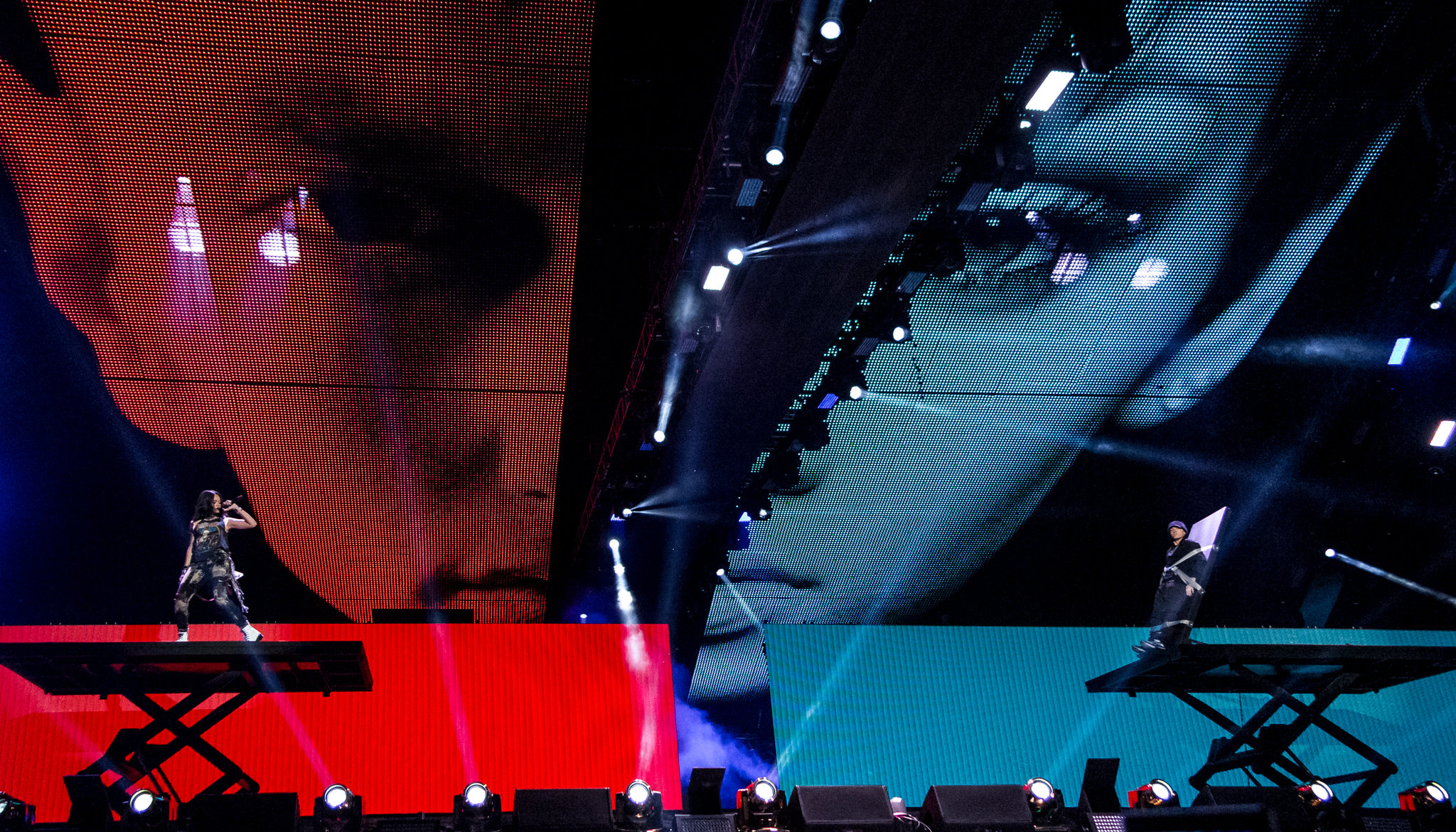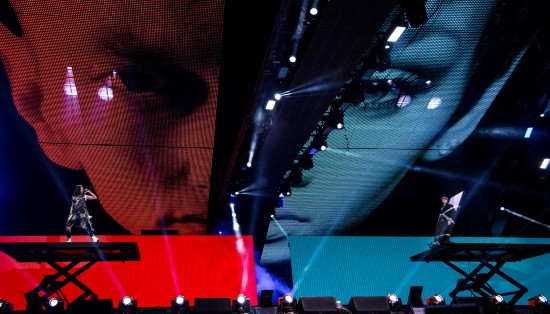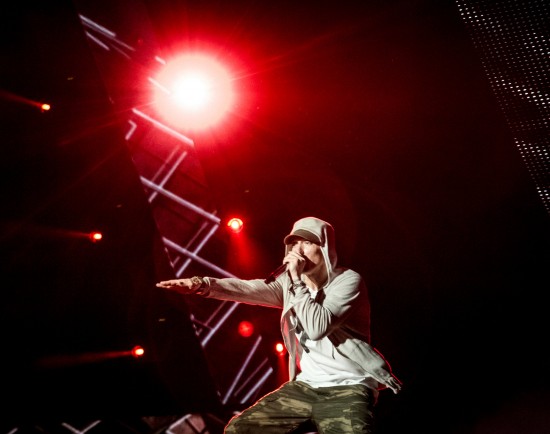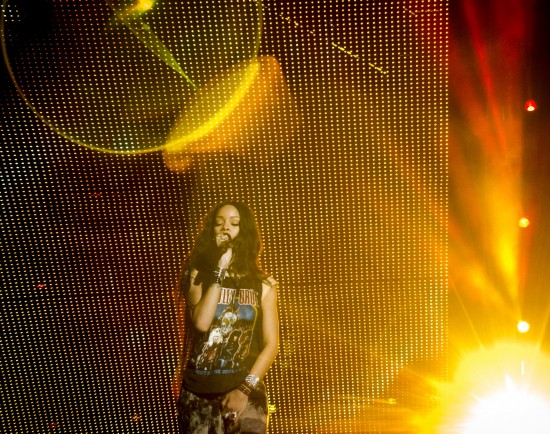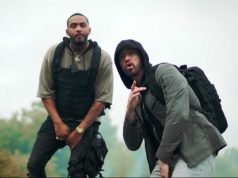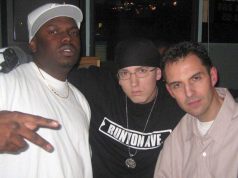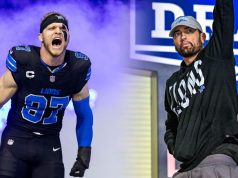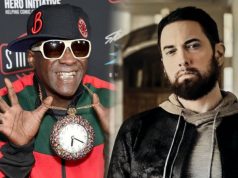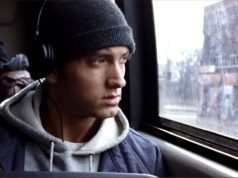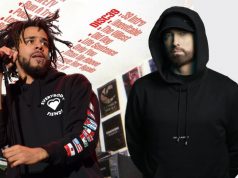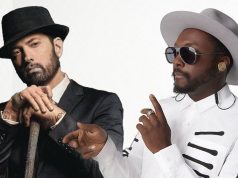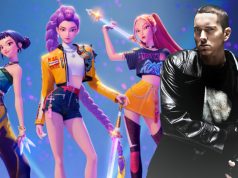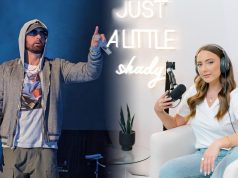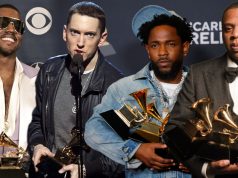EAST RUTHERFORD, N.J. — It’s difficult to think of Eminem — perhaps the most transformational pop music figure of the 2000s, and still a multiplatinum star — as a supplicant in need of a handout. But in 2014, he is merely a galaxy-size cult favorite, a 41-year-old white rapper far from the center of pop culture, leaning heavily on reputation and largely failing to innovate.
What has saved him from just being a prodigiously gifted relic is Rihanna. The last two times he’s topped the Billboard Hot 100, it’s been with her at his side: “Love the Way You Lie,” in 2010, and “The Monster,” last year. Both are songs with turmoil at their core, by a pair of artists with often differing ideas of how to communicate it. But these songs — “Love the Way You Lie” in particular — are slickly bruised, Rihanna’s voice pushed slightly past its typical neutrality, and Eminem channeling his anguish into narrative cohesion. In total, Eminem and Rihanna have released four songs together — the others are “Love The Way You Lie (Part II)” and “Numb,” both of which have appeared on Rihanna albums.
They don’t make the case for an album of duets, say, but they are sufficient pretext for the megastars to take a brief sojourn around the country together, one which arrived at MetLife Stadium here on Saturday night, for the first of two shows (following a pair in California, and preceding a pair in Detroit, Eminem’s hometown — the full extent of the tour).
For Eminem, who’s become reclusive in recent years, both during and after his struggles with drugs, this was an increasingly rare high-profile occasion. . For Rihanna, one of the most photographed pop stars of the day, this was like a cute, mildly distracting side project. If Eminem only wanted to remain a hero to nostalgists and to rap purists, he wouldn’t need Rihanna. But here she was, because Eminem needs more.
Eminem and Rihanna have a few things in common — careers built on disobeying and pushing outside the lines, a taste for the gothic and a sense of theater inspired by king-size rock music. But Rihanna only uses the mirror to check her appearance; she rarely digs deep and looks hard at herself. Eminem, on the other hand, stares hard, seething with self-loathing, and then breaks the mirror into tiny shards.
Still, this was a mismatch: of sonic styles, of performance approaches, of audiences. When it came to commitment and technical accomplishment, this was asymmetric warfare: Eminem laser-focused and professional, Rihanna sticking to her 10-mile stare and repertoire of half-dance moves. Like many in the crowd, Rihanna spent much of the show lip-syncing to Rihanna songs.
And yet she seemed grander than Eminem, who has remained resolutely blue-collar in demeanor and work ethic. His expertise is both thrilling and tiresome. At times, it feels as if he’s rapping merely to satisfy himself. But her evident lack of interest is enrapturing, her unwillingness to work hard the mark of someone who knows all the cheat codes. Her performance verged on the philosophical: What is the bare minimum Rihanna must do onstage in order for an event to qualify as a Rihanna concert?
She opened her solo set with abrasive, narcissistic numbers like “Phresh Out the Runway” and “Birthday Cake,” songs where she stands coolly still as the music slashes and burns around her. The set got sweatier and less scabrous with “Pour It Up” and “Cockiness (Love It),” and, eventually, she loosened up in full with the house-diva tempos of “Where Have You Been” and “Only Girl (In the World).” During a chaotic “Rockstar 101,” she thrashed against the floor while her guitarist Nuno Bettencourt shredded, as if she were sign-language translating for him.
Like Eminem, Rihanna has become darker as she’s evolved, but she never had his pep. As a result, his solo set was more frenetic than hers, teasing the crowd about illicit substances one minute, then not too long after delivering a searing performance of “Not Afraid,” about his battles with addiction. At times, he channeled the playful, spiteful Eminem of old, going from “My Name Is” into “The Real Slim Shady” into “Without Me,” songs where he honed the deranged character that defined his early years. Lately, though, he’s been returning to his rap bona fides, as seen here in the mid-1980s-influenced “Berzerk” and a truncated version of the Olympic sprint “Rap God.”
Most notable, here were the transitional moments, early songs like “Stan” and “Like Toy Soldiers” where he used female vocals to massage out the knots in his rhymes, and which set the template for the Rihanna collaborations that would keep him in the spotlight.
But a reliable gambit does not chemistry make. Their interactions were negligible and forced, and they largely stayed clear of each other’s orbits when they were both onstage (at the concert’s beginning, the end, and couple of moments in between). Their hug at the end of the night was that of two people who once shared an awkward intimacy and bump into each other in a hotel lobby several years later. The opening video was better, a re-enactment of the meeting scene in “The Silence of the Lambs” that devolved into foulmouthed comedy.
The pairing was most intriguing early on, when the two merged their songs, forcing interaction and requiring them to have given thought to the points where they could find overlap: Rihanna singing the triumphant “Run This Town” while Eminem rapped the sneering “Renegade,” which worked; Rihanna singing the blank “Live Your Life” giving way to Eminem rapping the devious “Crack a Bottle,” which almost did.
But it didn’t feel additive, and what was more noticeable was what they each denied the other. Rihanna was without her natural sensuality, and Eminem didn’t have his raw rage. They were two strangers brought together by expediency, both itching to retreat to their own dark corners.


